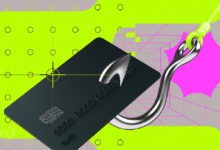Crypto Security Firm Unciphered Claims Ability to Physically Hack Trezor T Wallet

A company of cybersecurity professionals who specialize in recovering lost or stolen cryptocurrency say they have found a way to hack into the popular Trezor T hardware wallet once it’s in their physical possession.
Unciphered told CoinDesk in an extensive series of conversations and over email it made use of an “unpatchable hardware vulnerability with the STM32 chip that allows us to dump the embedded flash and one-time programmable (OTP) data.”
That’s all pretty technical, but the team did perform a laboratory demonstration – and documented it in a video – that it was able to hack into a Trezor T wallet supplied by CoinDesk and successfully retrieve our seed phrase and pin. Unciphered has previously hacked the EthereumWallet and recovered locked up crypto, though they claim on their website that they “do support every wallet in the market.”
Trezor told CoinDesk that its team didn’t have enough details about the specific attack Unciphered performed to respond fully, but noted that it looked like an “RDP downgrade attack,” which was publicly flagged as a risk three years ago.
A press representative for the hardware wallet maker said they were unaware of any attempts by Unciphered to reach out directly, even though, «as communicated on our blog in early 2020, RDP downgrade attacks require physical theft of a device and extremely sophisticated technological knowledge and advanced equipment.”
Trezor added that “even with the above, Trezors can be protected by a strong passphrase, which adds another layer of security that renders a RDP downgrade useless.”
Hardware wallets are suddenly in focus as a result of the recent public backlash against the rival maker Ledger over its proposed optional “recovery option,” which infuriated some users who had understood the device to be fully isolated. Many longtime crypto security experts have recommended hardware wallets as a safer place to store assets than keeping them on exchanges – especially after last year’s collapse of Sam Bankman-Fried’s FTX exchange – but the latest revelations show that the devices aren’t foolproof either.
Read more: Crypto Wallet Provider Ledger Delays Key-Recovery Service After Uproar
Unciphered said it wouldn’t confirm or deny whether its hack of the Trezor T would be considered an RDP downgrade, citing “current engagements and non-disclosure agreements” that restrict elaboration on “how this exploit chain works at this time.”
“Further, any technical disclosure would put Satoshilabs customers at potential risk till mitigations such as a new chip is utilized other than the STM32 in current use,” according to Unciphered.
Unciphered pointed out that, even though Trezor is aware that the Trezor T model has a vulnerability in its STM32 chip, the company has not done anything to fix that since the initial effort to publicize the risk.
“The fact remains that through this article they are trying to put the responsibility of securing their device on the customer rather than taking the responsibility of admitting that their device is fundamentally insecure,” Unciphered wrote in an email to CoinDesk.
Alternative options to hardware wallets
It bears emphasizing that Unciphered’s vector of attack only works with the device in the hacker’s physical possession.
“Security is that the threat can often be coming from inside the house,” said Nick Federoff, head of marketing at Unciphered. “We can be our own worst enemy. So this is a huge part of it.”
When a user sets up a hardware wallet, the wallet generates a random set of 12 or 24 words, known as a seed phrase, that allows access to the assets on the wallet.
As part of Unciphered’s effort to demonstrate its capability, company officials asked CoinDesk to acquire a new Trezor T wallet, set it up with our own seed phrase and write that down somewhere safe. We then sent it via a secure mailing option to Unciphered’s lab, where they then proceeded to hack into it (recording some of the steps on a video) and ultimately were able to retrieve our seed phrase and pin. The extra step of involving CoinDesk was suggested by the Unciphered team as a way of providing assurance that the procedure wasn’t faked or that the device wasn’t compromised by a previous owner.
The device retails for $219 on the company’s website.
Unciphered acknowledged that it had not contacted Trezor to notify them about the vulnerability prior to attempting to publicize it via an article on CoinDesk; often, such “white hat” hackers will work more cooperatively. “Unciphered has not contacted Trezor whether through our responsible disclosure program or otherwise,” said a press representative at Trezor.
Unciphered told CoinDesk that they had not contacted Trezor because “our obligations are to consumers instead of vendors, who have vested interests in selling more products, regardless of how vulnerable those products make the customers who use them.”
Read more: Hot vs. Cold Crypto Wallets: What Are the Differences?






 Bitcoin
Bitcoin  Ethereum
Ethereum  Tether
Tether  USDC
USDC  TRON
TRON  Dogecoin
Dogecoin  Cardano
Cardano  Monero
Monero  Bitcoin Cash
Bitcoin Cash  Chainlink
Chainlink  LEO Token
LEO Token  Stellar
Stellar  Zcash
Zcash  Litecoin
Litecoin  Hedera
Hedera  Dai
Dai  Cronos
Cronos  OKB
OKB  Tether Gold
Tether Gold  Ethereum Classic
Ethereum Classic  KuCoin
KuCoin  Cosmos Hub
Cosmos Hub  Gate
Gate  Algorand
Algorand  VeChain
VeChain  Dash
Dash  Stacks
Stacks  Tezos
Tezos  TrueUSD
TrueUSD  Decred
Decred  IOTA
IOTA  Theta Network
Theta Network  Basic Attention
Basic Attention  NEO
NEO  Synthetix
Synthetix  Qtum
Qtum  0x Protocol
0x Protocol  Ravencoin
Ravencoin  DigiByte
DigiByte  Zilliqa
Zilliqa  Nano
Nano  Siacoin
Siacoin  Numeraire
Numeraire  Waves
Waves  Ontology
Ontology  Status
Status  Enjin Coin
Enjin Coin  BUSD
BUSD  Hive
Hive  Pax Dollar
Pax Dollar  Lisk
Lisk  Steem
Steem  Huobi
Huobi  OMG Network
OMG Network  Bitcoin Gold
Bitcoin Gold  NEM
NEM  Augur
Augur